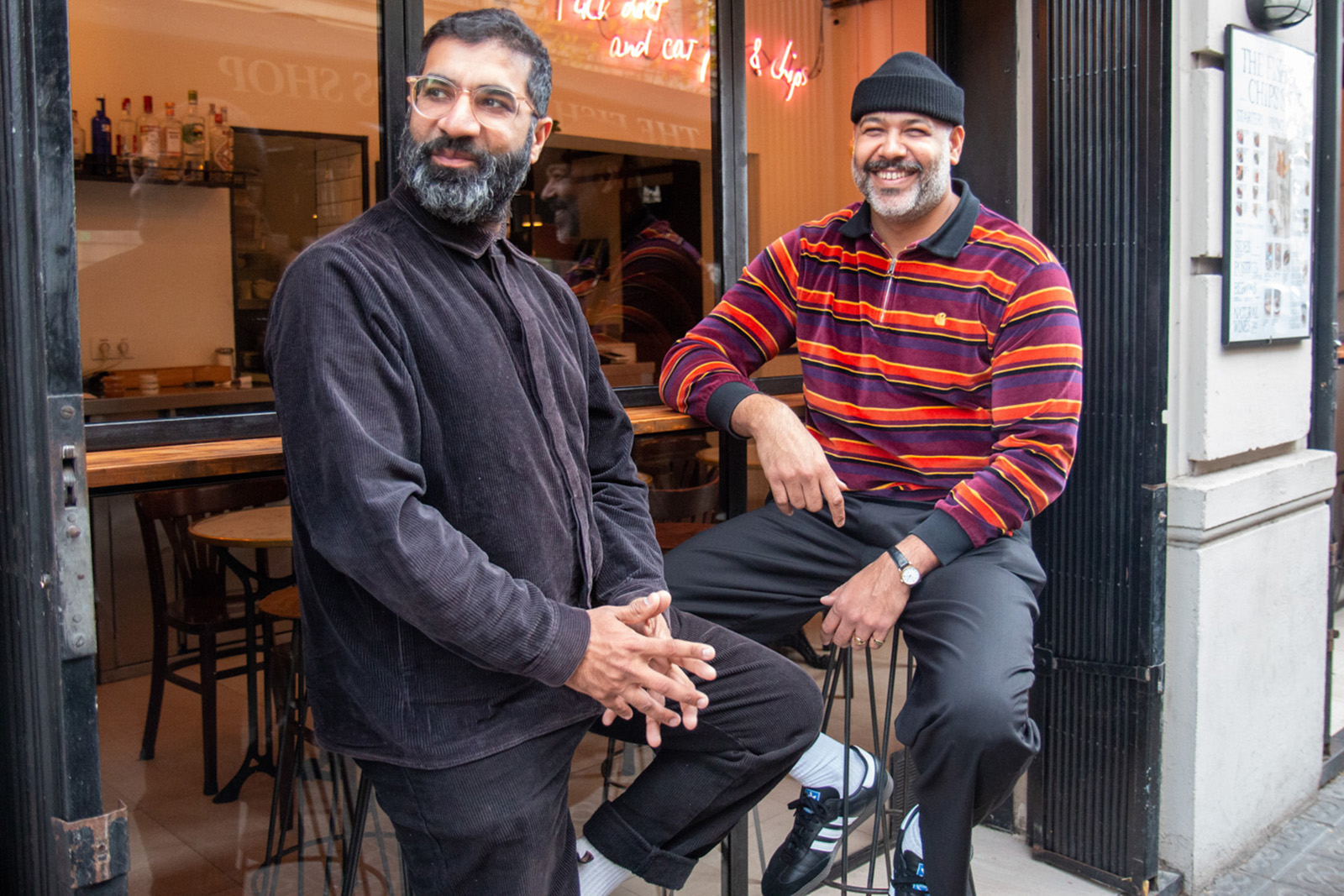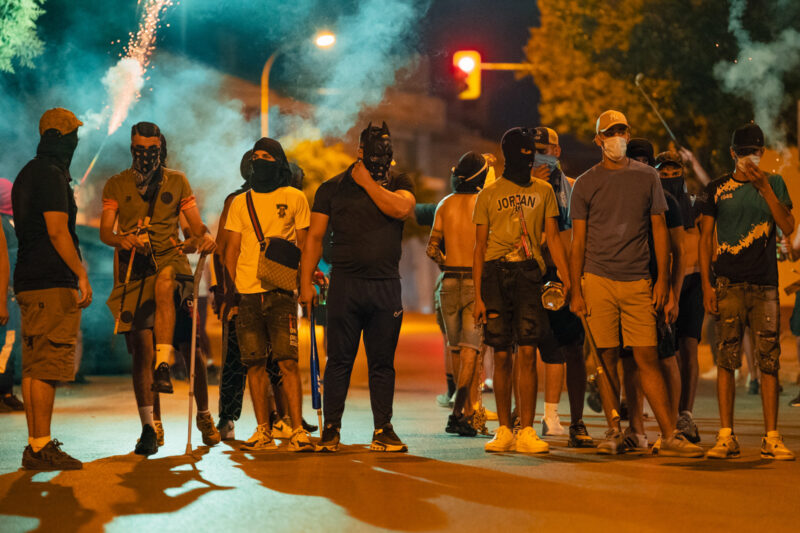Barcelona’s South Asian taxi drivers warn of chaos over Catalan language law

Draft law introducing new language standards could put the jobs of thousands of Pakistani and Bangladeshi cabbies at risk, PakTaxi union warns
Unions representing Barcelona’s South Asian taxi drivers say new legislation that would force them to prove their fluency in Catalan may strip thousands of drivers of their livelihood and gut the city’s taxi fleet.
The new taxi bill, proposed in September by a coalition of five parties from across the political spectrum in the Catalonian parliament to curb the rise of ride-hailing apps such as Uber and Bolt, already has enough cross-party parliamentary support to pass into legislation even before it has been debated in the house and could come into force as early as next spring.
The bill also has the broad support of the region’s taxi drivers’ unions, which agree there is urgent need for the market to be regulated and members protected from exploitation by platforms that don’t recognise their basic employment rights. In Barcelona, as in cities across the world, drivers have long complained about the rise of private companies like Uber engaging in unfair competition with unregulated fares.
However, the draft legislation also includes new language requirements for taxi drivers. The clause has been included to honour a pact made by the region’s parties across the political spectrum in 2020 to protect the Catalan language and encourage its use.
Catalonia, the north-eastern Spanish region of which Barcelona is the capital, has two official languages: Spanish and Catalan. Anyone wanting to work as a taxi driver must prove a minimum of intermediate Spanish and a basic level of Catalan. The new law, as drafted, will require drivers to prove they have intermediate Catalan. The influential Catalan linguistic association, Plataforma per la Llengua (Platform for Language), is lobbying for this requirement to be raised to advanced.
If the legislation is passed, drivers who cannot prove they have the legally required level of proficiency in Catalan will have two years to take classes and sit the relevant exam. The penalty for drivers who fail this test is yet to be decided.
Clara Tur, a spokesperson at Plataforma per la Llengua, argues that advanced fluency is necessary among taxi drivers so that customers can feel validated by their choice to speak Catalan and encouraged to speak it if they are not fully fluent.
Mudassar Hussain Bibi, a spokesperson for PakTaxi, an association representing about 5,000 Pakistani drivers in Barcelona, told Hyphen the new law would unfairly disadvantage drivers of South Asian origin.
“I speak Catalan, it’s no problem,” Bibi said in Catalan. “But other people who may be 50 years old and have been driving for 20 years, they would need six months of classes and that’s not possible. You cannot make that time when you have three, four kids.”
Bibi warned that these strict language requirements could “create chaos” for the city’s already over-stretched taxi fleet by keeping much needed drivers out of work.
“It’s not possible that taxi drivers are required to speak the same language level as a doctor or someone who works in government. We don’t think that’s fair,” he said.
Olivier Contel, president of Elite Taxi, among the largest associations representing Spanish and Catalan drivers, insisted that a commitment to fluency in Catalan was a matter of integration, adding that those drivers resisting it were simply refusing to integrate.
Catalan-speaking customers, Contel said, regularly complain to the local transport authority that their drivers can’t understand them. In Barcelona, where many taxi rides shuttle tourists to and from the airport, he argued, some drivers currently don’t see the need to learn Spanish or Catalan at all. “But the grandma who needs a taxi to go to the doctor,” he said, “she isn’t going to be able to speak English.”
Bibi insists, however, that most drivers already speak more than enough Catalan to get by.
Driver Sher Muhammad, 35, arrived in Barcelona from Kuwait with his family when he was 19. An informatics graduate, he started working as a taxi driver in 2018 when already fluent in Spanish. He sat through 90 hours of Catalan classes to get the basic certification currently required to start driving. In order to get an intermediate – or B2 — certification, he would have to return to classes and prove his understanding of complex texts and abstract ideas as well as an ability to write in detail on a wide range of topics.
Muhammad, who has two young children, is the only breadwinner in his family. Outside tourist season, he regularly works 12-hour days and says he wouldn’t have the time to attend language classes.
“I couldn’t survive,” he said. “I am paying for my taxi, I have a mortgage, and two kids in school.”
Marta Carballal, a Catalan driver who has worked alongside Pakistani colleagues for years, says she supports efforts to protect the regional language but believes that demanding high-level proficiency from taxi drivers is politically motivated.
“You can enter any taxi and you can speak in Catalan and they’re going to understand you. You can speak in Spanish and they are going to understand you. It’s not fair for norms to change like this,” she said.
“I think this is more of a political issue. I think this is something that has to do with separatism.”
Catalan separatism is a powerful, nationalist, historic movement calling for independence from Spain and the establishment of a Catalan republic; protection and promotion of the indigenous language is of symbolic importance to its supporters. In 2017, a referendum on independence was held but declared illegal by the Spanish central government in Madrid and its proponents fled abroad to avoid arrest.
After a decade in power, pro-independence parties lost their parliamentary majority in the 2024 regional election when the socialist party won the largest share of the vote and formed a coalition government with the pro-independence Esquerra Republicana de Catalonia (ERC). Both parties support the new taxi law alongside the centre-right Junts party, now in opposition (and whose leader Carles Puigdemont is among the exiled leaders of the independence referendum), left-wing separatists the Popular Unity Candidacy and the centre-left Comuns party. The bill is set to be debated in parliament later this year.
 Newsletter
Newsletter















